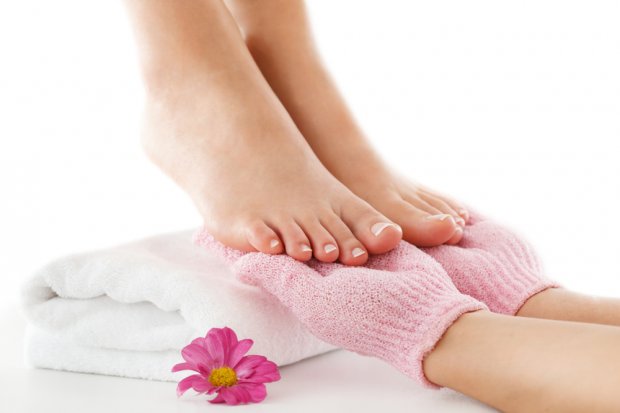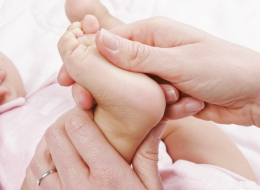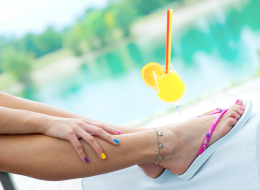Pregnancy Tips Is It Okay To Get A Pedicure While Pregnant?
So many things are restricted when a woman becomes pregnant: no more alcohol, no more sushi, no more cheese, no hot tub time, no more high-intensity workouts. But luckily for spa-addicted expectant moms, there’s absolutely no reason why you can’t get a pedicure while pregnant — so long as you follow a couple of special pregnancy-related spa guidelines.
Pedicures During Pregnancy: 5 Safety Tips
If you’re a mommy-to-be and still want to keep your feet and toes in great shape, all you have to do is follow these simple rules while getting a pedicure during pregnancy:
1. Choose A Well Ventilated Salon
Doctors warn that breathing in toxic fumes while pregnant can lead to birth defects, but a pregnant woman would need major, long-term exposure to spa and salon fumes before a problem would develop. However, it’s still a good idea to avoid breathing in strong fumes that could cause nausea, so be sure to choose a well-ventilated place for your pedicure or manicure.
2. Book Your Appointment During Slow Periods
The less people that are in the salon, the less chemicals that could make you nauseous are floating through the air. That’s why it’s a good idea to avoid booking your pregnancy pedicure appointment during busy, rush hour periods. Most nail salons are less crowded in the early morning, but call your specific spa or salon to check when their usual downtimes might be.
MORE FROM FOOTFILES:
3. Bring Your Own Nail Tools
The risk of contracting an infection during a pedicure is very low, but pregnant women are more prone to catching bacterial and fungal infections. Therefore, it’s a good idea to bring your own nail clippers, nail files, cuticle sticks and other pedicure tools. Even though reputable salons fully sterilize their tools, bringing your own ensures your risk of catching an infection is even further reduced. If you do opt to use the spa’s tools, then be sure they are sterilized with an autoclave device, which is the only way to ensure the tools are fully sterilized; chemical soaks do not kill 100% of bacteria and fungus.
RELATED: Here Are All The Pedicure Tools You Need
4. Ask For 3-Free Nail Polish
When it comes to nail polish colors that are safe during pregnancy, the sky is the limit. That freedom does not, however, translate to nail polish brands. Though nail polish has never been linked to birth defects in babies, concerned moms may still want to ask for a pedicure or a manicure with nail polish that doesn’t contain dibutyl phthalate, toluene or formaldehyde — three toxic chemicals often found in many brands. Some “3-free” polishes include Zoya, Butter London and Scotch Naturals.
5. Inform Your Pedicurist About Your Pregnancy
Be sure to tell your pedicurist that you’re expecting. It’s perfectly safe to soak and scrub your feet in warm water and to receive a gentle foot massage during the treatment; there is absolutely no evidence that pedicures induce labor. However, because certain reflexology points on the feet are thought to relax the uterus, it’s best that the pedicurist not press on any one spot for too long during the massage; gentle, long strokes are the best — and the massage can even help reduce soreness and swelling!
Have you noticed that your feet have started stinking since you became pregnant? Here's why smelly feet during pregnancy is a pesky reality for many women. Meanwhile, did you know that some doctors recommend that new moms skip buying infant socks? Here's why some experts say socks are bad for newborns.
Notice concerning medical entries:
Articles having medical content shall serve exclusively for the purpose of general information. Such articles are not suitable for any (self-) diagnosis and treatment of individual illnesses and medical indications. In particular, they cannot substitute for the examination, advice, or treatment by a licensed physician or pharmacist. No replies to any individual questions shall be effected through the articles.





